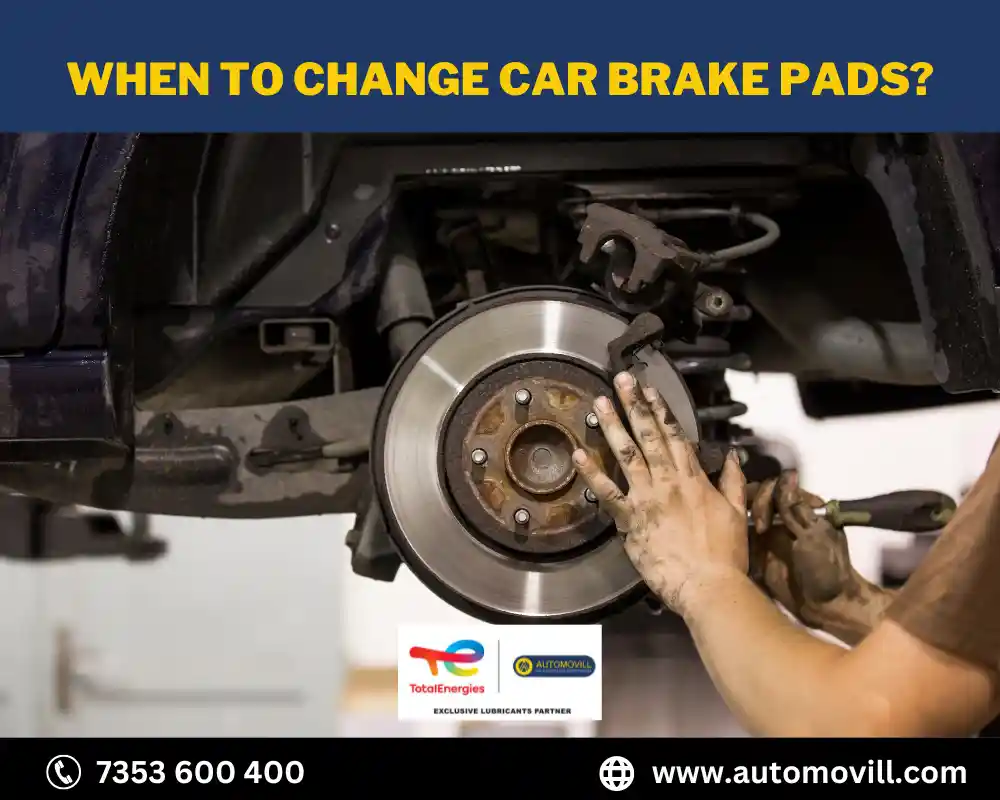
Safety is the most crucial aspect when you drive a car. Among the various components that contribute to your car’s overall safety, the brake pads play a vital role. So, to ensure safety, you must have your car to be serviced at regular intervals.
Understanding when to change your car’s brake pads is essential to ensure optimal braking performance and avoid potential accidents.
In this blog post, we will discuss the signs indicating a need for replacement, and the average lifespan of brake pads.
What are Brake Pads?
Brake pads are a crucial part of your vehicle’s braking system. They are designed to create friction against the brake rotors, which helps slow down or stop your car when you apply the brakes.
Brake pads are typically made of a composite material, which consists of friction materials bonded to a metal backing plate. This combination offers both durability and efficient braking performance.
Signs When to Change Car Brake Pads
Here are some common signs that indicate it may be time to change your brake pads:
1)Squealing Noises:
If you hear high-pitched squeaking or squealing sounds when applying the brakes, it could be an indication that the brake pads have worn down significantly. Brake pads come equipped with wear indicators and small metal tabs that make noise when the pads reach their minimum thickness level.
2) Taking Longer To Stop
If you notice a decrease in your car’s braking responsiveness or a longer stopping distance, it may be a sign that your brake pads are worn. This can happen when the friction material on the pads has worn thin, resulting in reduced braking efficiency.
3) Vibrations or Pulsations:
Vibrations or pulsations felt through the brake pedal when applying brakes could indicate uneven wear or warping of the brake rotors. However, it’s worth noting that brake pad issues can contribute to these symptoms as well.
4) Warning Light:
Some modern vehicles are equipped with a brake pad wear sensor that triggers a warning light on your dashboard when the brake pads are close to needing replacement. If this warning light illuminates, it’s crucial to have your brake pads inspected promptly.
5) Visual Inspection:
Regularly inspecting your brake pads can provide a good indication of their condition. If you notice that the friction material on the pads has worn down to around 1/8 inch (3 millimeters) or less, it’s a strong indication that they need to be replaced.
How Long Do Brake Pads and Shoes Last?
The lifespan of brake pads and shoes can vary depending on several factors, including driving habits, road conditions, and the type of brake pad material used. Here are some approximate estimates:
- Standard Brake Pads: On average, standard brake pads can last between 30,000 to 70,000 miles. However, this can vary significantly based on driving style and conditions.
- High-Performance Brake Pads: High-performance brake pads are designed to withstand more intense driving conditions and provide superior braking performance. These pads typically have a shorter lifespan and may need replacement between 20,000 to 40,000 miles.
- Brake Shoes (Drum Brakes): In vehicles equipped with drum brakes, brake shoes typically last longer than brake pads. On average, they can last between 40,000 to 70,000 miles.
It’s important to note that these figures are rough estimates, and individual driving patterns can influence the actual lifespan of brake pads and shoes. Regular inspections and maintenance by a qualified mechanic are crucial to ensure timely replacement when needed.
Conclusion
Maintaining properly functioning brake pads is essential for your safety and the safety of others on the road. By paying attention to the signs indicating a need for replacement and understanding the average lifespan of brake pads and shoes, you can ensure your vehicle’s braking system remains in top condition.
Remember, if you notice any of the signs mentioned earlier or suspect any issues with your brakes, consult a professional mechanic for a thorough inspection and replacement if necessary.
Stay safe on the road!
